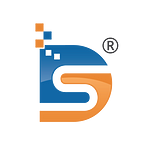Android app development is a huge market that will only grow in popularity and number of users in the coming years. This article will explore the best Android development tools for creating scalable, cost-effective, time-efficient, and future-proof Android application solutions.
Android development is the most productive segment of the software development industry. According to Statista, more than six billion people around the world currently use Android smartphones. Which is expected to grow quickly in the coming years.
The greatest tools for Android app development have been included below for those who are just getting started.
1. Eclipse
Eclipse is a well-known and widely used Android app development tool. It provides a coding environment and a set of tools for customizing application development projects.
A well-known program that provides a unique coding environment as well as options for customizing the app to meet specific needs. It is mainly used to write Java applications with plug-ins from the libraries. However, the most recent updates and upgrades have made it possible to write codes in ABAP, C++, C#, Fortran, Python, JavaScript, Ruby, Scala, and many other languages.
As one of the most well-known Android development tools, Eclipse offers a rich collection of functionality. These capabilities assist in scaling the codebase for future application developments and optimization.
Features of Eclipse:
1. supports a command-line-based system
2. Distributing the modules of an application
3. Automatic Error Reporting
2. Unity 3D
Unity Technologies has released an Android development tool for the Unity game engine. Use this platform to collaborate with your team and build games with cutting-edge 2D and 3D development tools. It enables the import of assets from 3D apps. Also, It offers training and advice for people who are just starting out.
Unity 3D is commonly used to create computer games for workplaces, comforts, mobile phones, and even websites. Recent updates to this program make it compatible with the development of cross-platform games.
Features of Unity 3D:
1. Creating And Deleting Game Objects,
2. Availability of Components
3. Game Object Event
4. Incorporating Vector Variables
5. Using Time Variables in Work
3. Ionic
Ionic Framework is a cross-platform, open-source UI toolkit for designing mobile and desktop apps using HTML, CSS, and JavaScript, with support for major JavaScript frameworks like Angular, React, and Vue. It was released by Adam Bradley, Max Lynch, and Ben Sperry in 2013.
This framework is easy to use and understand, and it employs APIs such as TypeScript, Virtual DOM, JSX, and async that are suitable for Progressive Web Apps (PWA). Apps such as Pacifica, Nationwide, and ChefSteps, along with many others, are built with the help of the Ionic framework.
4. Android Studio
Android Studio is consistently the most popular development tool. It is an official coding, testing, and debugging environment for Android application development.
It is a sophisticated application development tool that includes the most advanced capabilities and plug-ins. An easy-to-navigate interface allows users to perform tasks including modifying code, resolving issues, and running tests.
Android Studio has code-editing, troubleshooting, and testing tools in a simple interface. It is available for free download and is sponsored by Google along with a huge and active development community.
Features of Android Studio
1. Visual Layout Editor
2. Quick Emulator
3. APK Analyzer
4. Intelligent Code Editor
5. Instant App Run
6. Build an app for all devices
7. Real-time Profiler
8. Flexible Build System
5. Fabric
Fabric is a well-known Android app development platform that includes a comprehensive toolbox for creating high-quality mobile apps easily. The creation of mobile applications such as Twitter has utilized this technique.
Features of Fabric
1. Integration of analytics
2. Real-time notifications
3. Resolved crash reports
6. SonarQube
SonarQube was previously called Sonar, and it is an open-source platform. It is designed for the continuous evaluation of code quality. In order to find bugs, code odors, and other vulnerabilities in over 20 programming languages, it is crucial to conduct automatic reviews with static analysis.
Features of SonarQube
1. Decreases app vulnerabilities and focuses on extending the app’s life.
2. Conduct regular and consistent reviews of quality issues
3. Finds code errors and alerts app developers
7. B4A
B4A (Basic for Android) is an Android development environment for devices that is both powerful and easy to use. The B4A language is like Visual Basic, but it can also work with objects.
There are no extra runtimes or dependencies in B4A-built apps because they are native Android apps. B4A is different from other popular Android Development Tools IDEs in that it only works with Android.
In addition, B4A comes with a powerful GUI builder that works right out of the box with many screens and orientations. You don’t have to write XML. You can use a real device connected through B4A Bridge, a real device connected via USB, or an Android emulator to develop and debug. B4A comes with a huge library that makes it easy to make complex applications.
